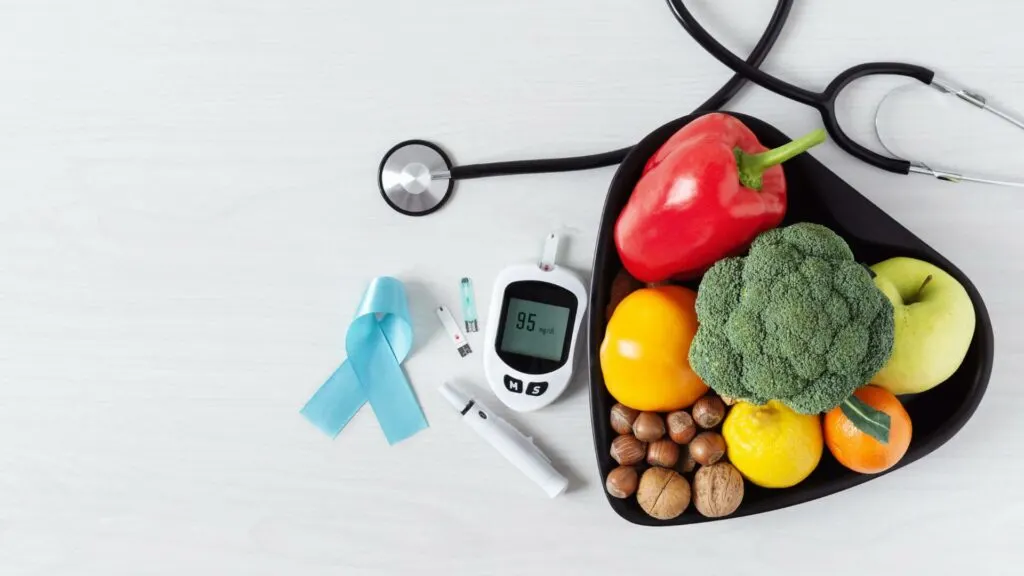Diabetes, a condition that’s fast becoming a global health crisis affects millions and changes lives in profound ways. Our comprehensive guide aims to demystify diabetes, offering clear, factual, and actionable advice on managing this chronic illness. Whether you’re newly diagnosed or seeking ways to manage your condition better, this guide will walk you through understanding diabetes, the importance of diet and exercise, and the latest treatment options. Knowledge is power, and with the right information at your fingertips, you can take control of your health and thrive.

1. Invest in Crucial Tools
Investing in crucial tools is a critical step toward effectively managing diabetes. Certain tools such as glucose monitors, insulin pens, diet tracking apps, and Sock Aid Slider Kit can significantly simplify the daily routine of individuals living with diabetes. Glucose monitors allow you to keep a regular check on your blood sugar levels, providing real-time data to guide your dietary and medication decisions. Insulin pens offer convenience and precision in administering insulin doses.
Diet tracking apps, on the other hand, can aid in meal planning, keeping track of carbohydrate intake, and helping note any patterns or triggers in blood sugar levels. Additionally, an easy-to-use sock assist tool makes it easier to put on and take off socks without bending over or straining. Utilizing these tools not only eases the management of diabetes but also empowers you to lead a healthier and more informed lifestyle.
2. Monitor Your Blood Sugar Levels
Regular monitoring of your blood sugar levels is crucial in managing diabetes. It helps identify any sudden spikes or falls in your glucose levels, enabling timely intervention. Checking your blood sugar levels with a home glucose monitor several times a day provides you with a detailed understanding of your body’s response to food, exercise, and medication.
The frequency of testing often depends on the type of diabetes and your treatment plan. For instance, people with type 1 diabetes may need to check their blood sugar levels four to eight times a day, while those with type 2 diabetes may need to check it less often. Regardless of the type, maintaining a log of your blood sugar levels helps you and your healthcare provider make informed decisions regarding your diet, physical activity, and treatment plan.
3. Adopt a Balanced Diet
Adopting a balanced diet is a key strategy in managing diabetes. Consuming a variety of nutrient-dense foods in appropriate quantities can help maintain healthy blood sugar levels. Regular meals and snacks featuring carbohydrates, proteins, and healthy fats can keep your glucose levels stable throughout the day. Opt for whole grains, lean proteins, and plenty of fruits and vegetables. Monitor your carbohydrate intake as it directly impacts your blood sugar levels.
However, a healthy diet doesn’t imply cutting out all of your favorite foods. The key lies in moderation and portion control. For instance, if you enjoy sweets, you can still have them in small portions as part of a balanced meal. It’s also important to stay hydrated and limit your intake of sugary beverages, as these can lead to blood sugar spikes. Working with a dietitian can help you develop a meal plan that fits your personal health goals, food preferences, and lifestyle.

4. Engage in Regular Physical Activity
Exercise helps lower blood sugar levels, reduce body fat, and improve heart health. It’s recommended for individuals with diabetes to engage in at least 150 minutes of moderate to vigorous aerobic activity per week, such as brisk walking, cycling, or swimming, along with strength training exercises twice a week. It’s important to start slow and gradually increase the intensity and duration of your workouts. Always remember to consult with your healthcare provider before starting a new exercise regimen.
In addition to structured exercise, incorporating more physical activity into your daily routine can also be beneficial. Simple changes like taking the stairs instead of the elevator, parking further away from the store entrance, or doing some light stretching during TV commercial breaks can add up over time. Keep in mind it’s essential to monitor your blood sugar levels before, during, and after exercise, especially if you take insulin or other diabetes medications. This will help prevent hypoglycemia (low blood sugar) and ensure you’re exercising safely.
5. Take Your Medication as Prescribed
Different medicines are available to lower blood sugar levels in various ways. Some stimulate your pancreas to produce more insulin, while others inhibit glucose production from your liver. Some medications block the action of enzymes that break down carbohydrates or increase insulin sensitivity in your tissues. Your doctor will determine the best treatment plan for you, which may involve one or a combination of these drugs.
Adhering to your medication schedule is crucial. Missing doses or not following your prescribed regimen can disrupt your blood sugar balance, potentially leading to complications. If you struggle to remember to take your medication, try setting phone reminders or using a pill dispenser with an alarm. In case of unpleasant side effects or ineffective medication, promptly communicate these issues to your doctor. They can adjust the dosage or explore alternative treatments for better management of your condition.
6. Seek Support
Living with diabetes can be challenging at times, both physically and emotionally. It’s essential to seek support when needed to help you navigate the complexities, such as understanding What Is Diabetic Macular Edema. Joining a support group or talking to a therapist can help you cope with the daily challenges of managing your condition. It is also helpful to connect with others who are going through similar experiences through online forums or social media groups.
Additionally, educating your friends and family about diabetes can help them understand your needs and provide you with the support and encouragement you need. Remember, diabetes doesn’t have to be a burden that you carry alone. Seeking support from loved ones and healthcare professionals can make all the difference in managing your condition effectively.
Always remember that managing diabetes is not a one-size-fits-all approach. Each individual’s journey with this condition may be unique, and it’s crucial to have open conversations with your healthcare team and make adjustments to your management plan as needed. Stay up to date with the latest research and developments in diabetes treatment, and don’t hesitate to ask questions or seek a second opinion if necessary. With proper management and care, individuals with diabetes can lead fulfilling lives and achieve their goals.

Jessi is the creative mind behind The Coffee Mom, a popular blog that combines parenting advice, travel tips, and a love for all things Disney. As a trusted Disney influencer and passionate storyteller, Jessi’s authentic insights and relatable content resonate with readers worldwide.

Thriving with Diabetes in the Workplace: Easy Management Strategies
Saturday 16th of March 2024
[…] levels, eat healthily, and manage stress requires thoughtful planning and resilience. However, managing diabetes at work doesn’t have to be daunting. With the right strategies, you can effectively control your […]
The Diabetes Diet Dilemma: 10 Foods to Sidestep for Better Health - Digi Blogs
Monday 19th of February 2024
[…] Managing diabetes often feels like navigating through a culinary minefield, determining which foods to consume for optimal health and which to avoid to prevent blood sugar spikes. While living with diabetes doesn’t mean you have to sacrifice flavour and enjoyment in your meals, it does require a heightened awareness of food choices. This detailed guide will delve into ten specific foods that, due to their high glycaemic index or poor nutrient profile, should be kept off your plate to manage diabetes effectively. Arm yourself with this knowledge to help maintain stable blood sugar levels and support your overall health. […]
Mastering the Art of Healthy Eating with Diabetes - INSCMagazine
Monday 19th of February 2024
[…] change in diet; it calls for a transformation in how we approach food and nutrition. The journey of managing diabetes through diet is not about depriving oneself but about embracing a balanced, flavourful, and […]